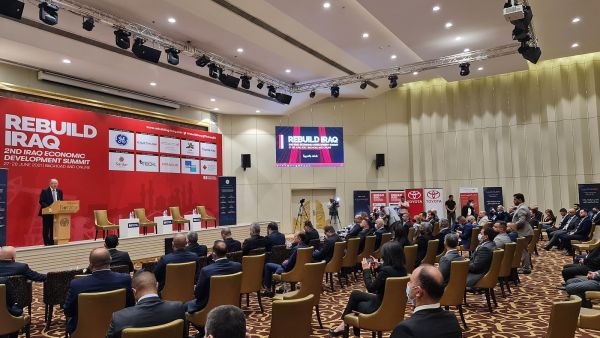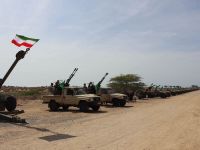GE Announces New ‘Energy Transition Plan’ To Support Iraq’s Electricity Sector

GE has announced a comprehensive “Energy Transition Plan” for Iraq, presenting its transformative strategies to support the country’s evolution to a cleaner energy future. The plan includes several key pillars that support the government’s goals to enhance Iraq’s power infrastructure, as well as promote decarbonization and energy sector diversification.
The Energy Transition Plan was announced at the Rebuild Iraq event in Baghdad, a high-level summit organized in close collaboration with the Prime Minister’s Office and Iraq’s National Investment Commission.
Dr. Abdurrahman Khalidi, Chief Technology Officer of GE Gas Power – EMEA said, “We have continuously focused on supporting Iraq’s power infrastructure development through end-to-end solutions – from securing financing to delivering cutting-edge technology. It is now important to step up the drive toward cleaner energy systems that bring a triple advantage to the country: deployment of diversified energy sources to meet growing demand; achieving decarbonization commitments through the deployment of more efficient gas power and renewable energy sources; and setting a stable platform for safe, reliable, and cleaner energy for the future. This is the guiding strategy for our ‘Energy Transition Plan’ for Iraq and is the most comprehensive approach, covering all potential solutions the country can leverage.”
The plan proposes a strategic mix of customized technology and solutions that supports decarbonization across the energy landscape unique to Iraq. From world-record-holding high-efficiency gas turbines to upgrade solutions to fast and flexible aeroderivatives, GE’s team of global and local experts can make decarbonization a reality for Iraq.
The key pillars of GE’s Energy Transition Plan are:
- Maintenance, rehabilitation, and optimization of power plants: improving performance between 5-10% and converting assets for a potential 20% reduction in CO2
- Flared gas utilization: generating an additional 10 GW by turning flared gas in power
- Combined cycle conversion: converting from simple cycle can add additional power with zero incremental fuel or emissions
- Addition/displacement of inefficient generation: bringing advanced technology and modernizing existing plants to reduce C02 emissions
- Use of hydrogen for power generation in concert with carbon capture technologies: can remove up to 90% of Co2 emissions from gas turbine exhausts
- Transformation of Iraq into a regional energy hub: Enhancing an interconnected grid to be stronger, smarter, more reliable, and more sustainable.
Deployed together as a strategic priority, GE solutions can play a key role in achieving Iraq’s goals of cutting greenhouse gas emissions and accelerating the decarbonization journey in the country, while meeting increased demands for power supply.
Background Information
General Electric
GE provides knowledge, capacity building and training to empower the region’s workforce. Thirty percent of the Middle East and North Africa’s population is between the ages of 15 and 29. In the UAE, we’re partnering with the Mubadala Development Company to build local capacity by empowering local talent through trainings at our Leadership Acceleration for Business (LAB) initiative.
With 76 nationalities working in the region, GE proudly fosters diversity in the workforce. To accelerate the advancement of women, the Women’s Network, an affinity network at GE, creates opportunities for female employees to cultivate their leadership and business skills. GE is not just watching as the region realizes its future; we’re partnering to help build it.






